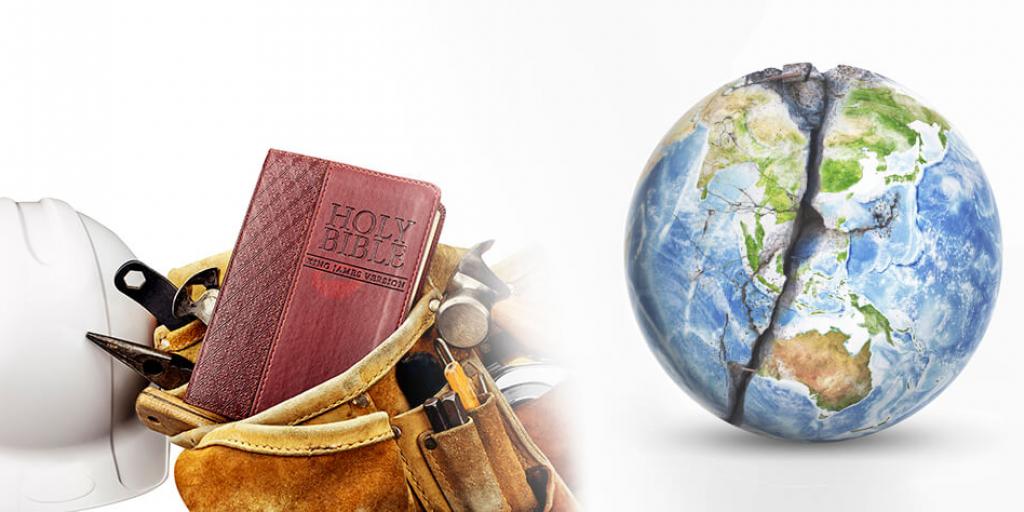
Fixing What is Broken
My father had a knack for fixing things. He was very mechanically inclined. On numerous occasions, I observed him fixing a broken, often poorly manufactured item and making it better than it was before. Sometimes he fixed what supposed “experts” could not. Broken things need fixing.
All physical things get broken or worn out. We’ve all experienced it. You may possibly have been more than a little irked with a manufacturer when you discovered that an item you purchased was made with a flimsy plastic “doohickey” instead of a stronger piece, composed of better material, to keep it from breaking so easily! Every day, stores “write off,” discard, or replace broken products.
But, even the highest quality and best manufactured items eventually wear out or break. I think it may have something to do with that pesky second law of thermodynamics, which I’ll simply describe as: “Energy gradually degenerates.” An unused battery lying in a drawer still loses power. The energy holding atoms and molecules together slowly decays. Ultimately, everything breaks down or wears out.
Repairing broken things is a big part of many economies. From automobiles to zippers, manufactured items break down and need maintenance and repairs. My current vehicle recently faced its 50,000-mile scheduled maintenance. The air conditioner and furnace need a yearly tune-up. Many other items need to be maintained or fixed from time to time. Millions of people are employed in the “maintenance and repair” parts of our economies. They earn a living by fixing things, whether our homes, our automobiles, or even our bodies in clinics and hospitals. Yes, we wear out too.
While a few things are better when broken (like the old saying, “You can’t make an omelet without breaking a few eggs!”), generally, most broken things need either to be repaired or discarded.
Human relationships also get broken. Treaties between nations, seemingly, are always broken. Sometimes it seems as if the ink has barely dried on the signed peace treaty when the shooting starts again and the news media reports that the “cease-fire treaty” has not held. As is often said, covenants and treaties seem frequently to be “worth less than the paper they're written upon.”
Sadly, our societies have seen marriage covenants broken, and more in the past few decades, than the marriage covenants that are honored and maintained. Divorces and annulments are so common today that we hardly blink an eye when we hear of it. It didn’t used to be that way.
Broken covenants bring broken hearts. Broken hearts aren’t easily mended. But, the strange thing about hearts is that it seems they need to be broken in order to be fixed!
In David’s prayer of repentance, Psalm 51, he says, “The sacrifices of God are a broken spirit, a broken and a contrite heart—These, O God, You will not despise” (v. 17). Jesus Christ has the power to heal broken hearts: “He heals the brokenhearted and binds up their wounds” (Psalm 147:3). And in Psalm 34:18: “The Lord is near to those who have a broken heart, and saves such as have a contrite spirit.” And, when Jesus began His ministry, He said that He was sent to “heal the brokenhearted…” (Luke 4:18).
God is going to fix everything! That is what the gospel is about. It is the announcement of the good news of Jesus Christ’s return to the earth to establish His kingdom to reign over all nations; to end war, and to remove Satan so that man is no longer deceived; to bring real and lasting peace, to heal broken hearts and broken bodies and the earth itself, and to fill the earth with the knowledge of God—thus bringing peace, happiness, and prosperity.
God will fix everything! For more about that good news of the coming kingdom of God, read our free booklets: Do You Believe the True Gospel? and The World Ahead: What Will It Be Like?
Stay up to date with our Weekly Digest Email!
Tomorrow's World ComMentary Podcast
Subscribe to Tomorrow's World Commentary podcasts on iTunes and Google Play!



